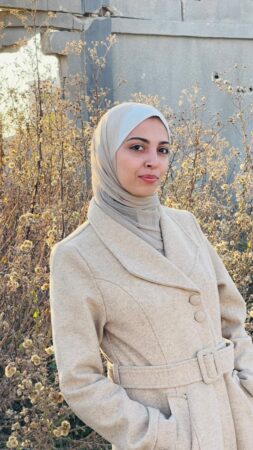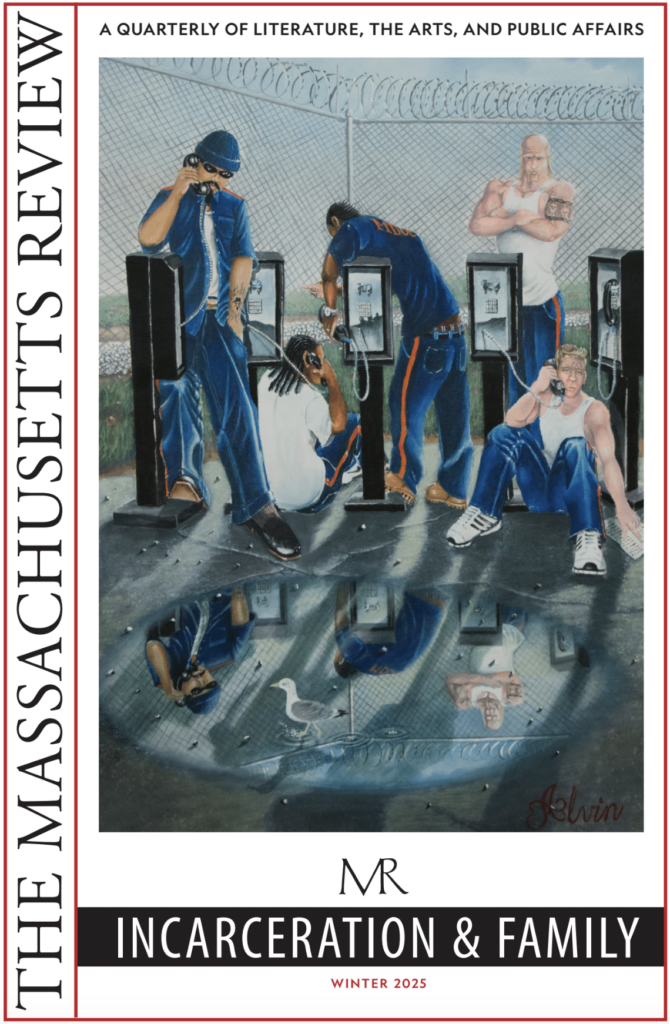My Sister Asks Me For A Star

After months of war in my neighborhood of Al-Shujaiya—a place that was once full of life and laughter—everything was gone. No homes, no people, no signs of the world we once knew. After the third invasion, it became a ghost town, buried in silence and rubble.
During the genocide, before we had to flee our home, I often stood on our balcony at sunset with my five-year old sister, Marah. I used to look at the sky, the clouds, the stars, just to avoid looking down, where the ground was soaked in blood and destruction. The ground had seen us evacuate so many times that it felt like it was watching us too.
Marah and I stood there together, laughing and chatting, trying to escape the horror surrounding us. That evening, she asked: “How can I hold a star?” I looked up, searching for an answer. But before I could speak, she added: “Why does it turn on and off, Nadera?”
I wondered the same. How could the stars still shine through all this blood and ruin?
Marah asked: “How can I shrink a star and put it in my room so I can see it at night?”
At bedtime, she and my other siblings would ask me for stories. I had to invent them, since the power was out and I couldn’t read to them from a book. When Marah asked how to shrink a star, I just stared at her in silence. I was struck by how a child so young could dream such big, bright dreams in the midst of war.
Suddenly, she began to loudly sing in English a favorite song that she had learned from YouTube. “You are my sunshine, my only sunshine, you make me happy when skies are gray…” I told her to lower her voice, but deep down, I didn’t care if the whole world heard her. I just wanted her to be happy—even for a moment—in the middle of the nightmare we were living.
This was before the displaced people began returning from the south. While she sang, Marah asked: “Can my aunts hear me?” They were still in the south, and we hadn’t seen them for over a year. Then, as the sun began to set, she asked: “Is the sun going to visit our aunts?”
How could I explain that we lived in the same city as our aunts, separated only by a few kilometers—but also by checkpoints, barriers, and violence?
Her questions kept coming, and I found myself without answers.
A massive explosion lit the sky. A ball of fire and red-black smoke rose in the distance, like a volcano erupting. The sound was deafening. As the smoke twisted into strange shapes, Marah pointed and said: “Look! It’s a tree! But trees are beautiful, and this one isn’t.” Then she laughed: “Look how the trunk is leaning!’
While she saw a tree, I saw something else. I saw death. I wondered: How many children had just been killed? How many souls were taken by that missile? Why is this still happening to us? When will we get to live a normal life, like normal people?
Marah’s voice pulled me back: “Can the star hit the smoke?” she asked. “If we were there, we would have died, right?”
My little sister knew the names of the four cardinal directions. She stood at the window and pointed: “That’s south—where my aunts are. And there’s the sea. When will we go to the beach, Nadera?”
One night, I heard her whispering our cousin’s name after midnight. In the morning, she told us: ‘I saw her in my dream. She came back from the south and hugged me tight.”
In May 2025, Marah finally went to the sea for the first time since the start of the war. We were visiting a relative who lived near the coast. When she saw the blue horizon, she yelled: “It’s the sea! Let’s go there, Dad!” The moment her toes touched the sand, she laughed and ran toward the waves. Then she asked: “Where’s the beach toy seller, Nadera? Why is the beach empty? Where are the people?”
I often look at her drawings. On one side, she draws missiles, soldiers, and a crying child. On the other, she draws rainbows, roses, and beautiful houses.
I am in awe of how Marah is filled with curiosity and keeps asking questions. She manages to find beauty in the middle of the devastation around us. I am grateful that she can still laugh and dream about a brighter future. But this is not the life that any child deserves.
NADERA MUSHTHA is a writer and poet from Gaza studying English language education at the Islamic University of Gaza. Her writing has been published on The Guardian, Al Jazeera, the Electronic Intifada, Mondoweiss, and the Washington Report on Middle East Affairs.



